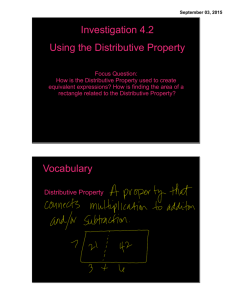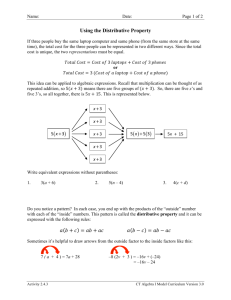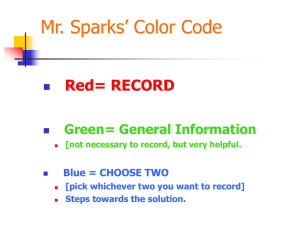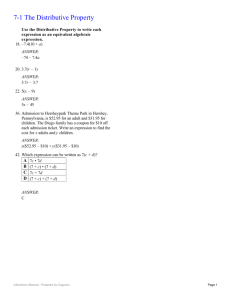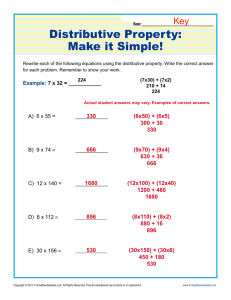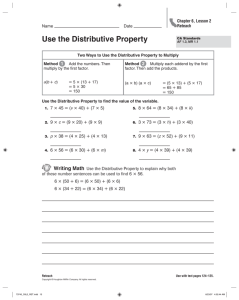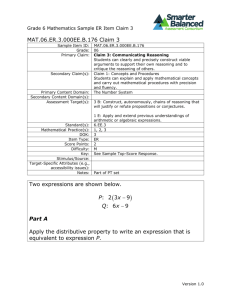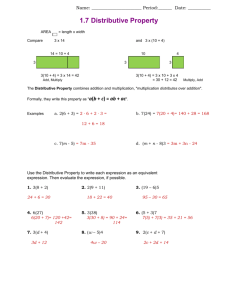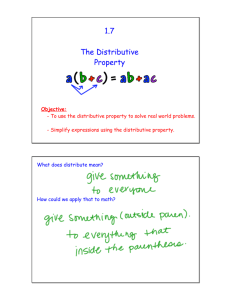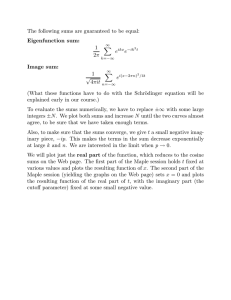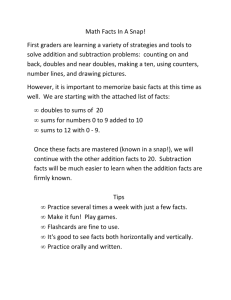Writing Sums as Products: The Distributive Property
advertisement
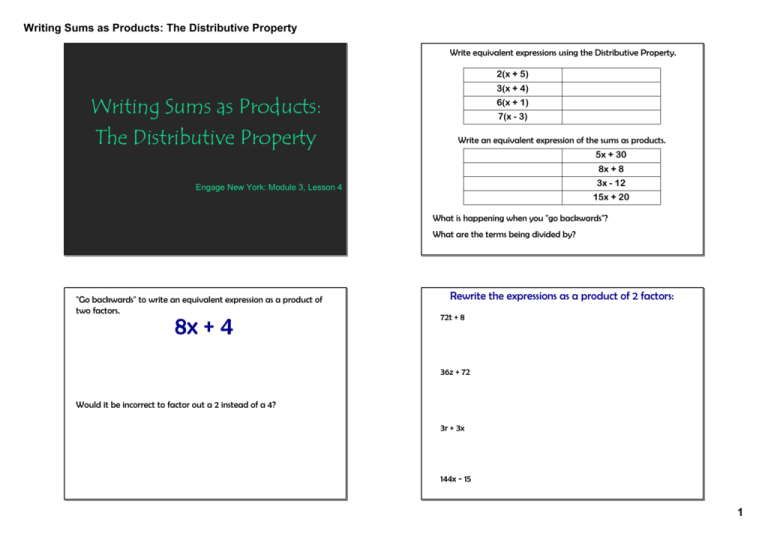
Writing Sums as Products: The Distributive Property Write equivalent expressions using the Distributive Property. 2(x + 5) 3(x + 4) Writing Sums as Products: The Distributive Property 6(x + 1) 7(x ­ 3) Write an equivalent expression of the sums as products. 5x + 30 8x + 8 3x ­ 12 Engage New York: Module 3, Lesson 4 15x + 20 What is happening when you "go backwards"? What are the terms being divided by? "Go backwards" to write an equivalent expression as a product of two factors. 8x + 4 Rewrite the expressions as a product of 2 factors: 72t + 8 36z + 72 Would it be incorrect to factor out a 2 instead of a 4? 3r + 3x 144x ‐ 15 1 Writing Sums as Products: The Distributive Property Write each sum as a product of 2 factors: Write each sum as a product of 2 factors: 2 3+5 3 (x + y) + (x + y) x 3+5 3 (2 + 5) + (2 + 5) + (2 + 5) x 4+y 4 2x + (y + x) + 5y 2

